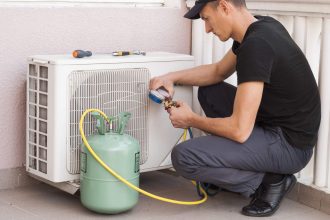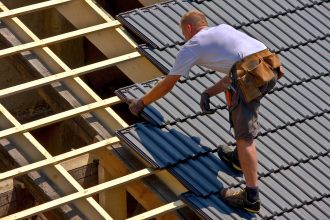Anyone dealing with a deceased person’s property understands why it’s such a hard time! Aside from the grief and agony of losing a loved one, there’s a lot to manage. For most people, the death of a parent or close relative means inheriting property and dealing with wills, probate, and inheritance tax. Well, if you are one of them, nothing can quite prepare you for coping with the situation than understanding the entire process of probate sale!
Perhaps you may have heard the term ‘probate’ before and have a rough idea of what it is, but are you aware of its intricacies? If not, we are here to help you learn the ins and outs of probate. Hopefully, reading this blog will give you an idea of how to deal with a property in probate!
To start with, let’s find out what happens to a house in probate.
What Happens To A House That Heads For Probate?
Well, probate can be avoided in the first place if the house of a deceased owner is automatically passed on to heirs or beneficiaries via a transfer-on-death deed, living trust, joint ownership, or community property law. On non-availability of any of these exceptions, the property heads toward a probate irrespective of the presence or absence of a will.
Probate is a legal procedure where the heirs and beneficiaries of a decedent’s property obtain the physical and financial assets promised to them in a will under the supervision of a court. Usually, a probate process is lengthy due to the complexities or debts of the estate, family relations, and directions left by the descendant.
Moreover, probate laws vary from state to state. So, dealing with a probate sale requires you to be hands-on with your state’s probate policies. Remember that the whole point of probate is to prevent fraud after someone’s death. For properties tied to business ownership, probate can introduce additional complexities, especially when the deceased leaves behind commercial assets or unresolved business affairs. Seeking guidance from a probate attorney for business owners in Coral Gables ensures that both personal and business-related assets are managed and distributed in compliance with probate laws. This can be especially beneficial for business owners aiming to secure their legacy and protect their beneficiaries.
That’s why it’s always better to keep a close eye on an estate’s most significant asset – the house!
Here are a few common scenarios that will give you more precise insights into what happens to a house in probate:
1. Probate property transferred to heirs named in the Will
In cases where a decedent property owner leaves a Will to transfer his/her estate to the family members, the executor named in the Will is responsible for carrying out the decedent’s final wishes.
First, the executor must file a petition with the probate court and set a court date. Once the executor is granted the legal authority to access, alter, or administer the decedent’s estate, he or she must convey the property to the beneficiaries under the supervision of a probate judge. At this point, the legal heirs or beneficiaries can either choose to keep the house or sell it.
However, if the surviving heir or beneficiary stands to be a minor, the court will appoint a probate guardian to act as the executor of the decedent’s estate.
2. Property transferred to an immediate family member
In the event that the decedent left no will to name the beneficiaries, that is, if a decedent’s estate hasn’t been transferred via a living trust, transfer-on-death deed, or joint tenancy law, the probate judge names an immediate family member to be the executor of the estate.
In such a case, the probate court may convey the property to the surviving spouse, children, or next of kin, following the particular state’s intestate succession laws.
3. The Estate executor sells the property with probate oversight
In cases where a person dies without naming any specific beneficiary to his or her property in the Will, the estate executor needs to sell the house in probate.
Now, although the process of probate sale varies from state to state, the steps that remain the same are – the estate executor hires a reliable realtor to handle the probate transaction, orders a home inspection of the probate property, and then the house is publicly marketed just like a traditional house sale or distressed property for sale.
What Happens To The Belongings Inside The Probate House For Sale?
Since an estate involves certain monetary and sentimental value, the probate process is designed to prevent the executor from making hasty or emotional decisions. In potential probate cases, the estate executor or administrator should make sure that nothing happens to the house or the contents inside it upon the death of the homeowner.
In fact, everything should remain physically untouched until the probate court names an executor for the decedent’s estate. Once an executor is appointed, he or she can only take inventory and appraise assets. The personal belongings inside the property should either be distributed among the legal heirs or sold off in an estate sale.
Final Words
Ultimately, what happens to a house in probate largely depends on the varying laws from state to state. However, what remains common is: either the house in probate is conveyed to the estate survivors or passed on to a probate sale through a court.














